

A CSM and UAL graduate, Elena Bianca Zagari owes her formal training to London, but no city has ever made her feel like she has a story to tell more than her native Naples. Having realized she could only connect emotionally to the images she had been taking of the Neapolitan women around her, she now brings these shots together in a new book, capturing the ecstatic moments, the rituals of care and windows of solitude and play, that characterize Neapolitan womanhood outside of societal preconceptions. The photographer tells Gilda Bruno about how, lensing these young women’s worlds, she reconciled with the seemingly irreconcilable paradoxes of her own.
Elena Bianca Zagari always found being born in Naples, southern Italy, to be her croce e delizia (“cross and delight”). Growing up there, the photographer tells me, meant coexisting with its paradoxes. “Napoli is a city of immense beauty, yet one defined by political, social and practical contradictions," she explains. As a Neapolitan, it is impossible not to feel bound to its land, history and traditions, to ignore how religion—“comfort mixed with authority and moral weight”—subtly infiltrates daily life. “It’s as if the city’s past, with all its struggles and triumphs, became part of you, shaping not only your sense of belonging but also your way of seeing the world,” Zagari explains.
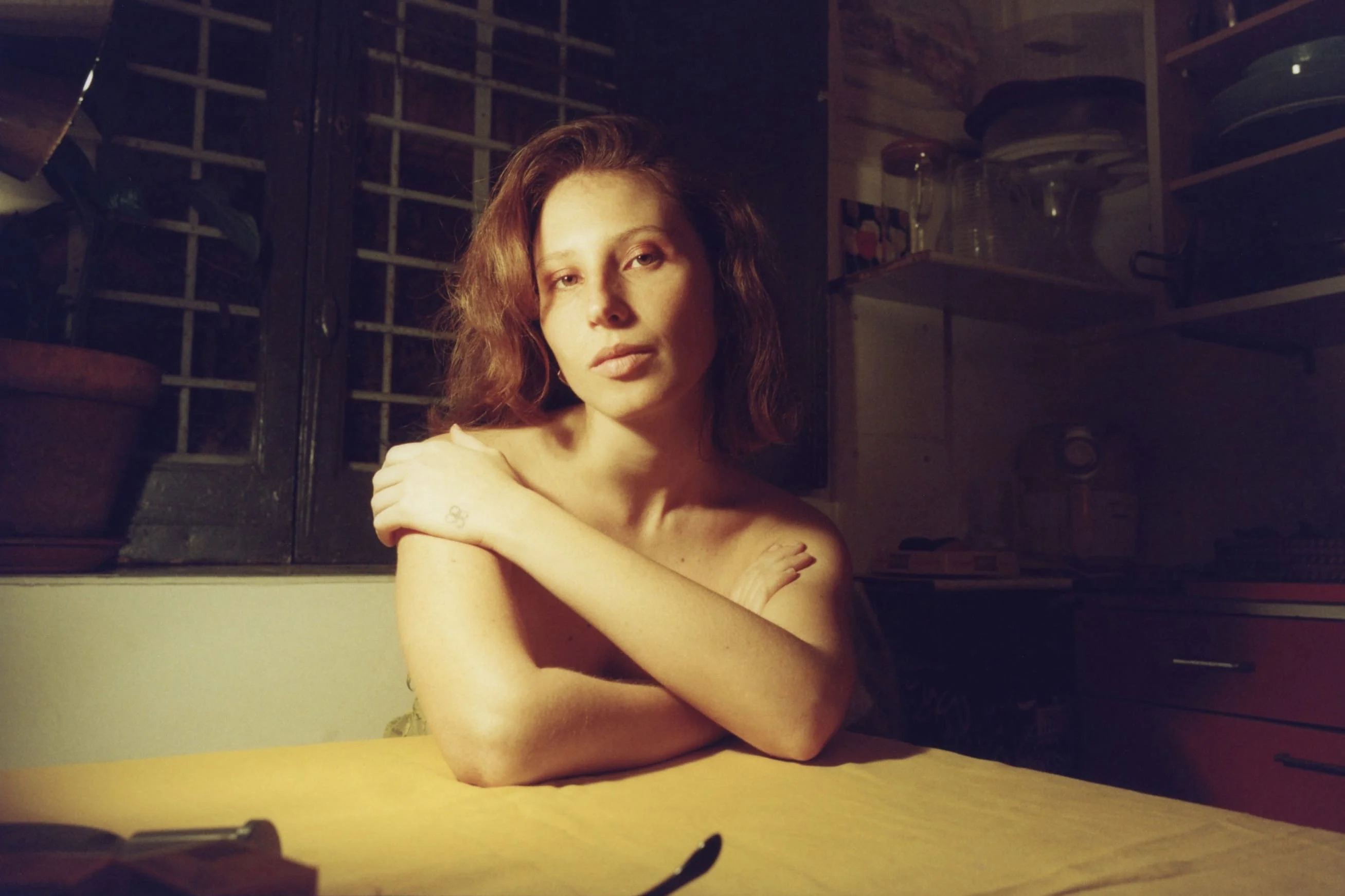
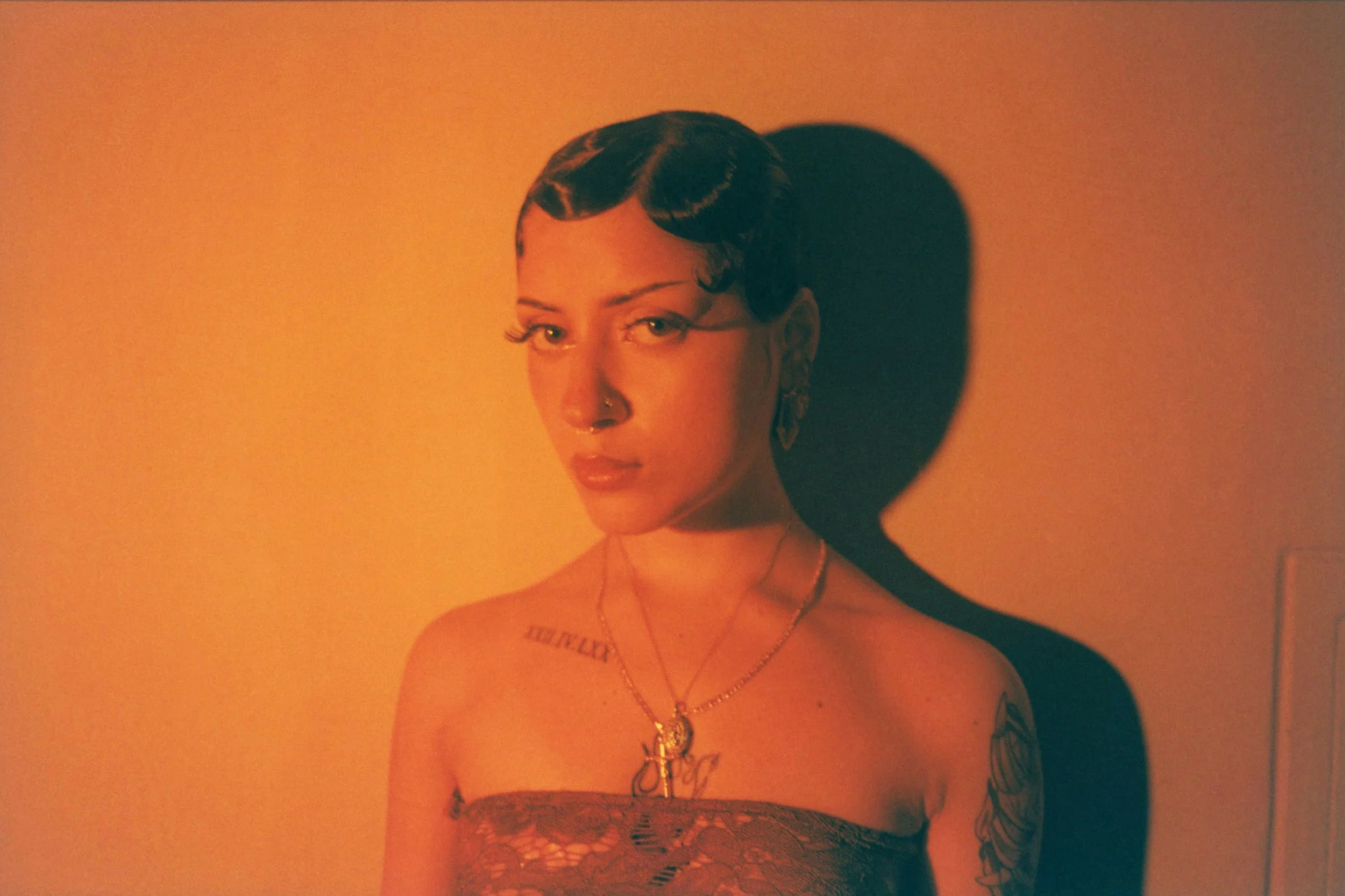
It’s as if the city’s past, with all its struggles and triumphs, became part of you.
It is unsurprising that, as her hometown continued to shape her personal imagery over the years, her debut book, “Un Mondo Proprio,” brings her distinctive vision of the people and places of Naples to the fore, starting from the young women who, she argues, still hold secondary roles in its representation—a portrayal set by “rigid gender norms and expectations.” Comprising some 100 images between intimate portraits, domestic still life and electrifying, nocturnal action shots, the volume, printed in June, allows us a nuanced glimpse inside the lives of Zagari’s closest girlfriends, also directing the attention to those of the women she serendipitously made along the way.
“For me, Naples is a city of extremes: peace and chaos, wealth and poverty, breathtaking beauty and stark reality,” the photographer says of the setting of her first monograph. The intensity, the rawness and the omnipresent life that make her love it are, at the same time, what frustrate her most about it. “Naples is unpolished, imperfect and undeniably real, and the emotions it stirs are just as raw: here, love and hate, joy and pain, never separate, but always intertwine.”
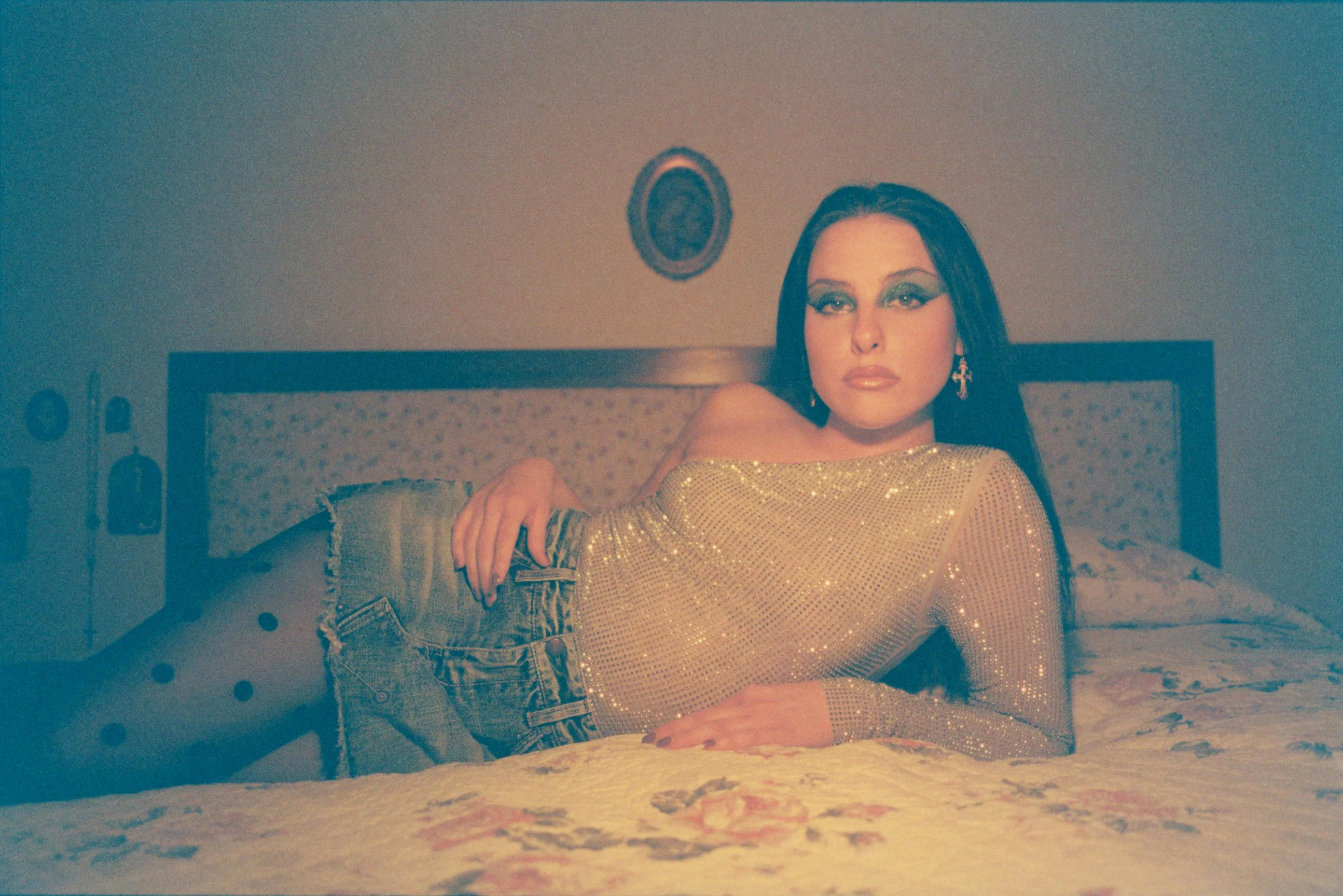
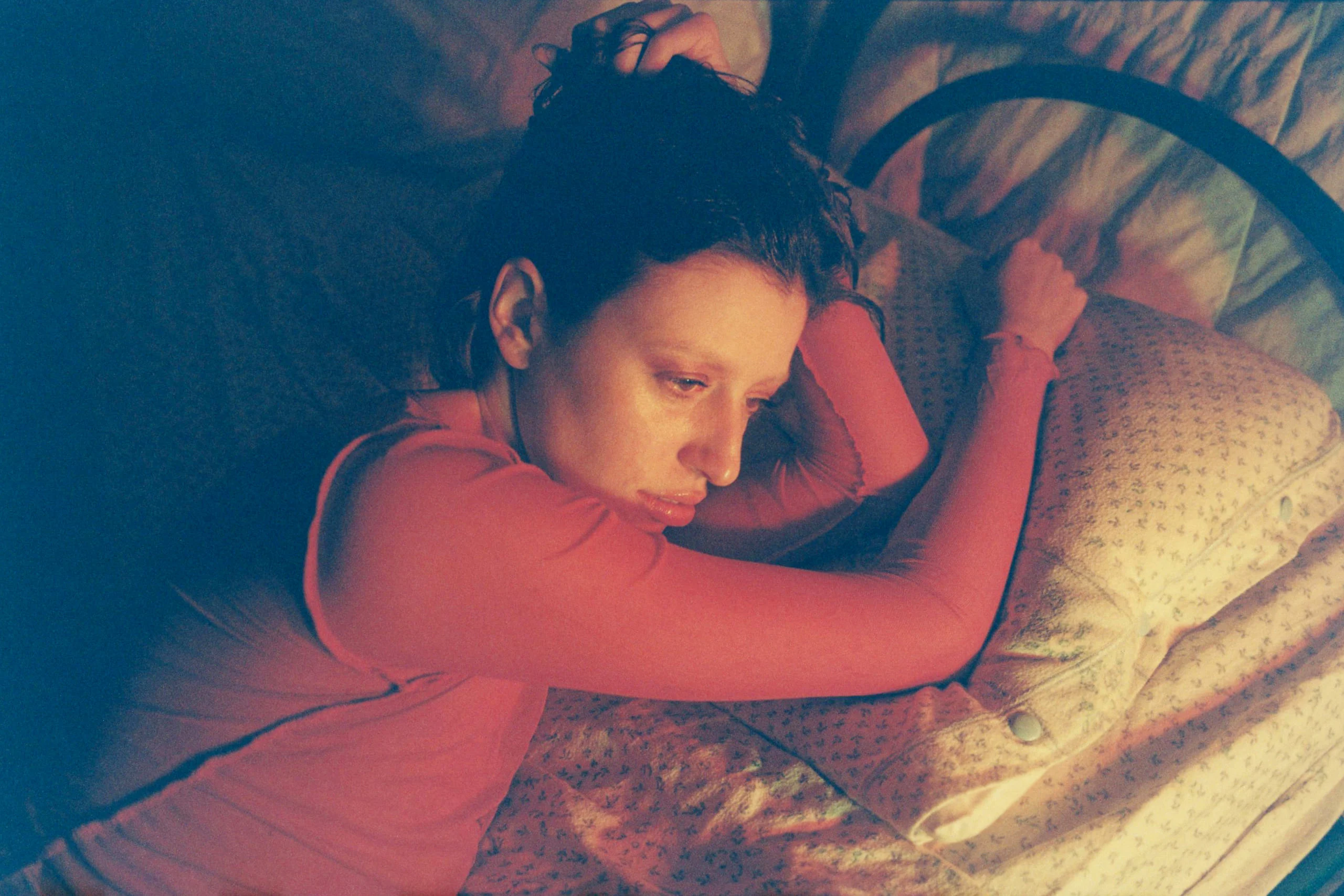
Like Naples itself, “Un Mondo Proprio” is defined by multiple atmospheres that are either juxtaposed to heighten a sense of contrast or overlaid, conveying a disorienting feeling. Among them, the heavy, almost insinuating presence of Catholic faith is especially noticeable: crosses, sacred statuettes and religious iconography occupy these young women’s otherwise irreverent spaces, appearing anywhere from their jewelry and tattoos to the shelves and walls of their homes.
In one of its spreads, a life-size Virgin Mary, placed in front of a painting of Jesus bearing the message “Holy face, protect me,” stares to the ground, her arms spread wide open. She appears to be blessing—or, rather, forgiving—the girl who, taking over the opposite page in a camouflaged bikini top, sparkling belly chain and jeans, looks provocatively into Zagari’s lens.
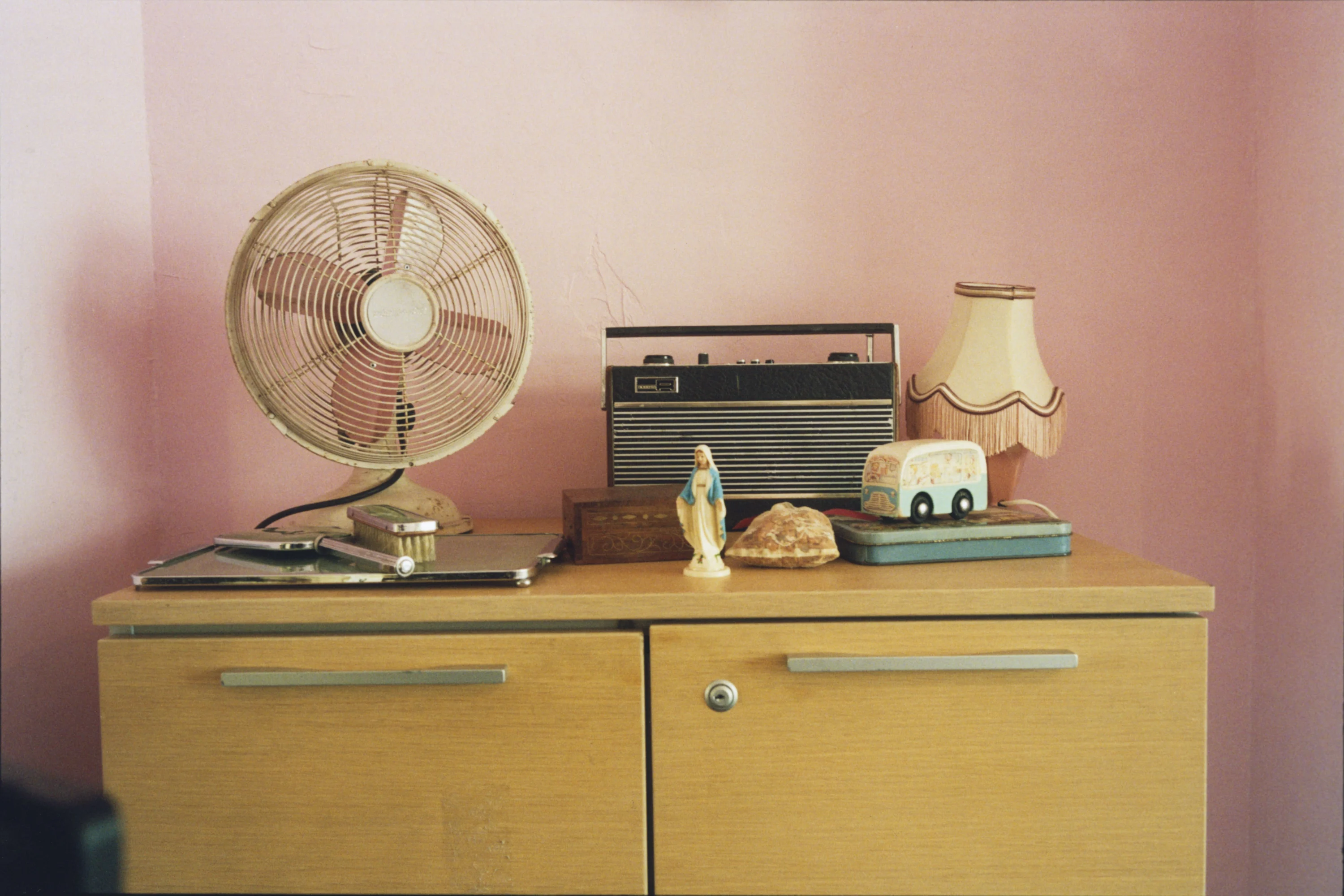
Elsewhere in the monograph, which interposes the many Madonna shrines the streets of Naples are dotted with—symbolizing how, even in today’s society, “women’s beauty often lends itself to repression”—with daring snapshots of its female protagonists, these are caught doing what people on the cusp of adulthood do best: they dance, smoke and daydream in their rooms, bathe and inspect their makeup ahead of a night out, or are driven around town, hair blowing in the wind.
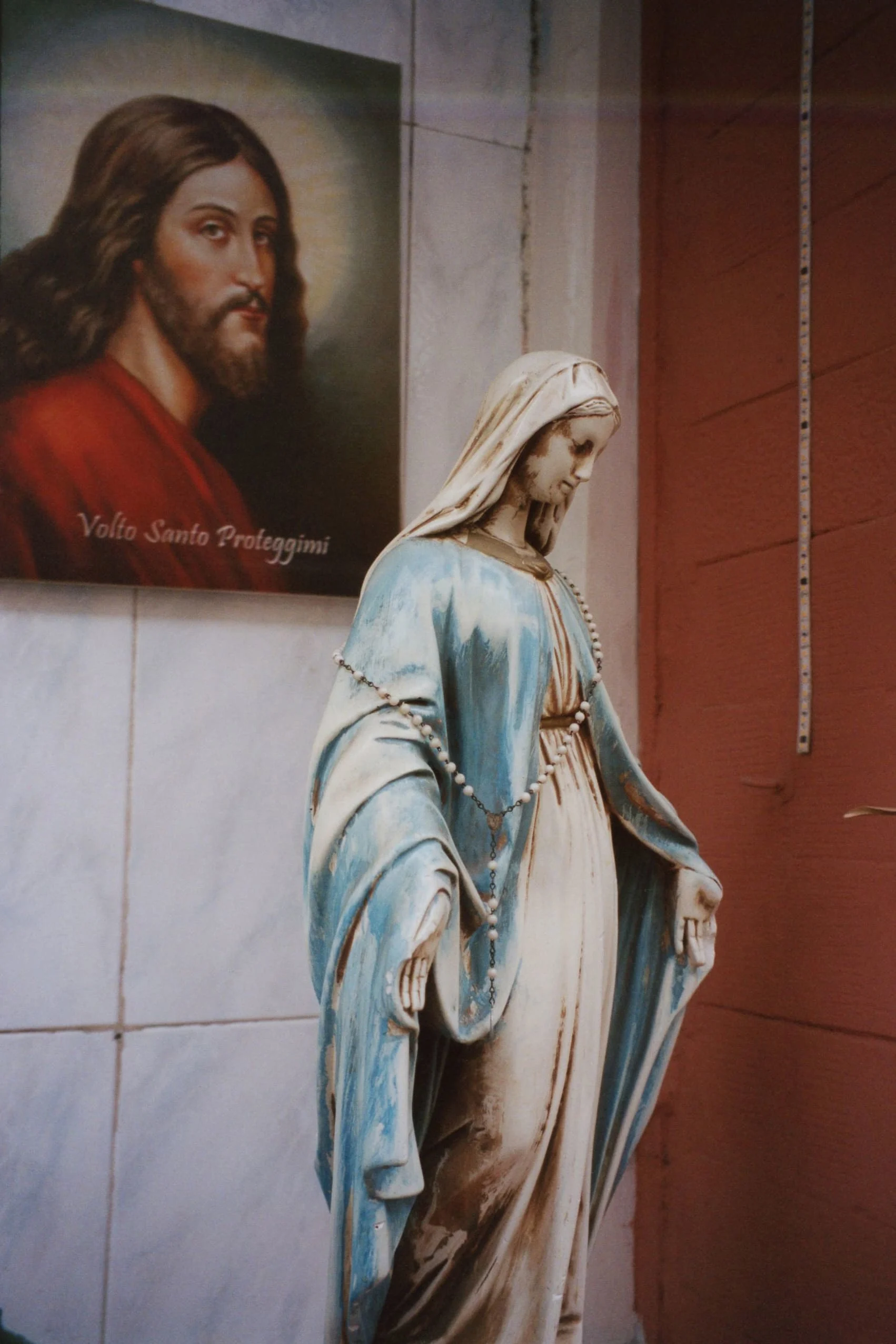
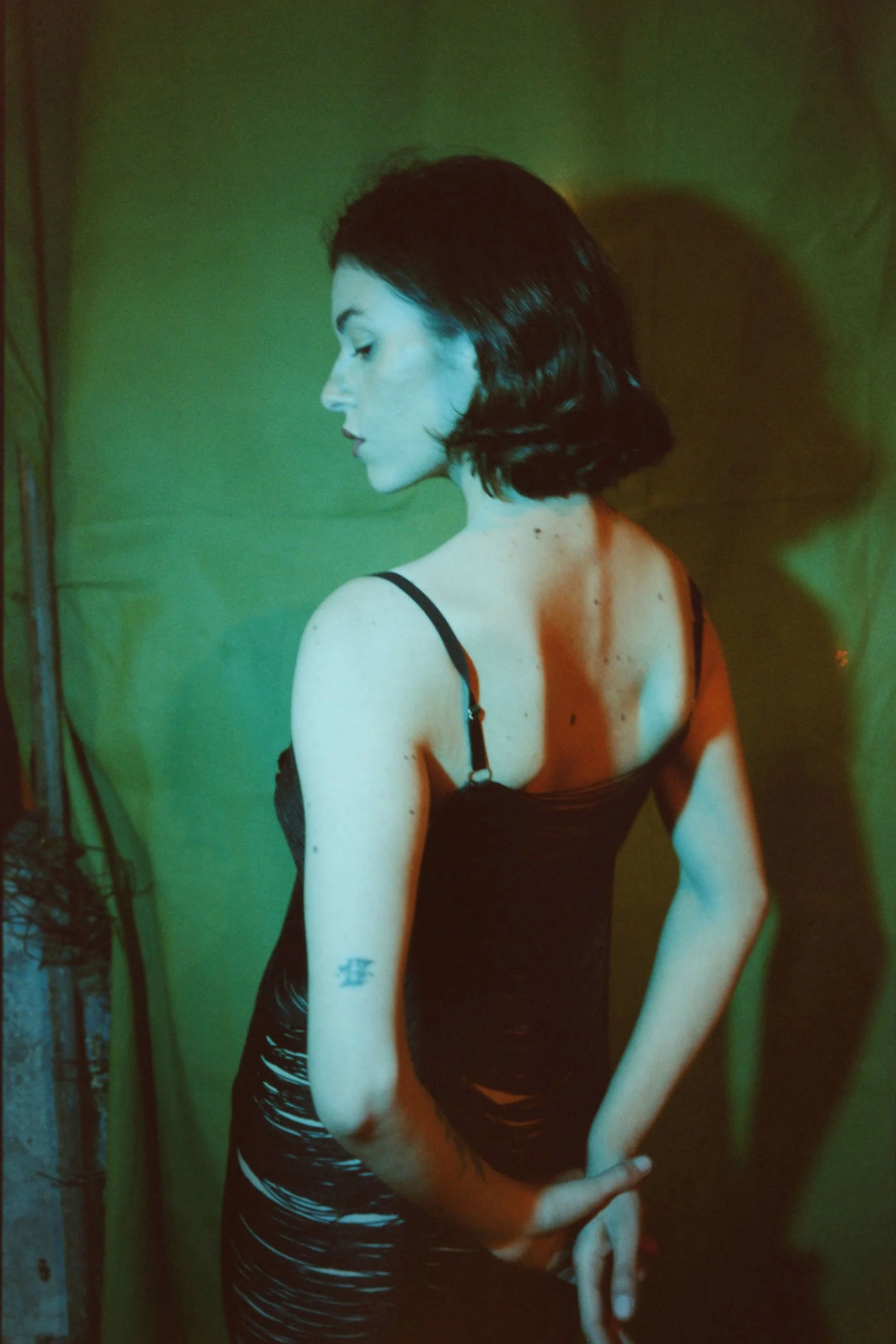
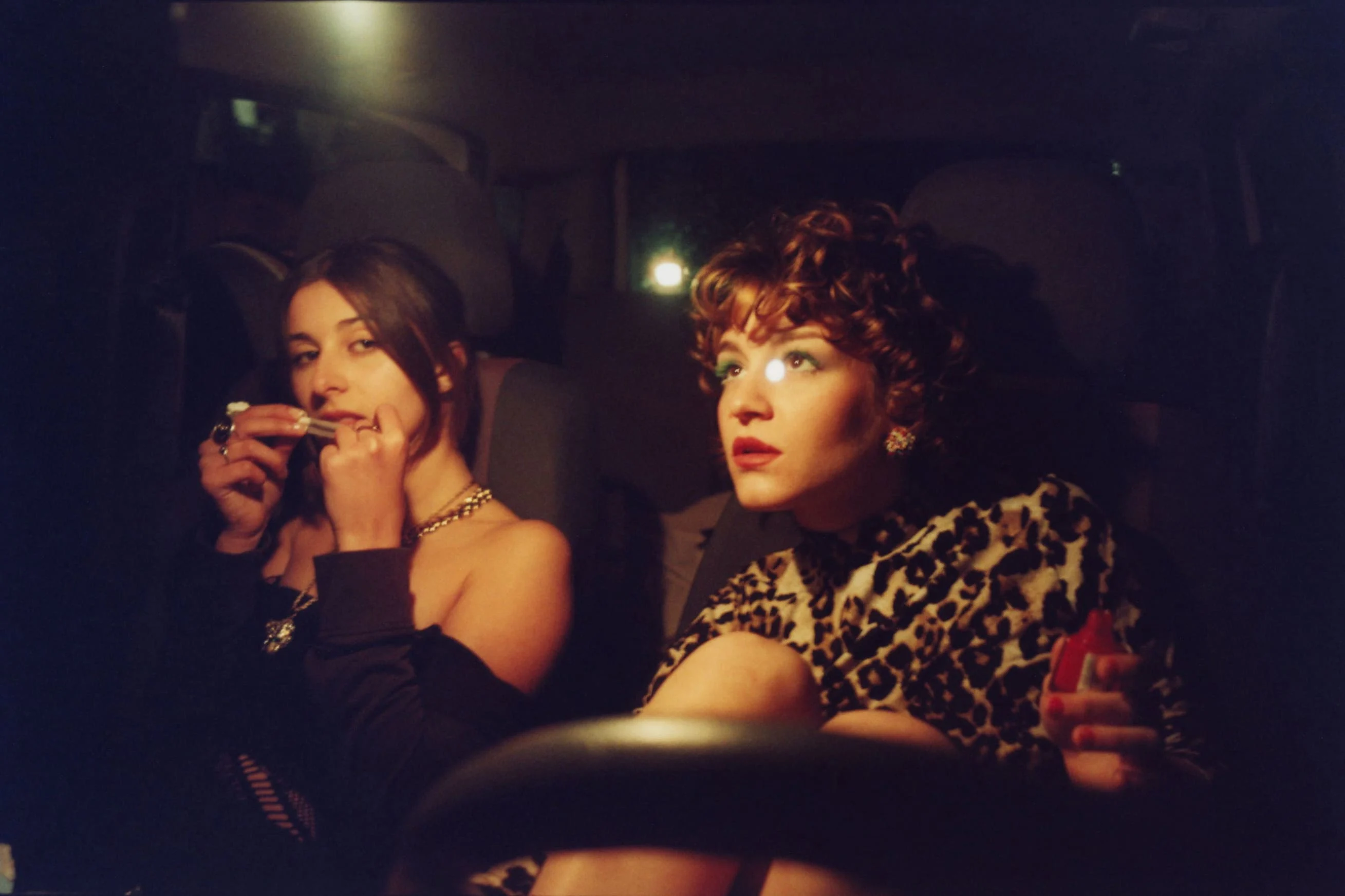
Having begun to document her Neapolitan friends in her teenage years before relocating to the UK to study at London’s CSM and, later, fashion photography at UAL, Zagari, born in 2003, recalls feeling frustrated when she realized that the only subjects she felt truly compelled to photograph were those very friends. It was only after diving into the writings of feminist authors like Laura Mulvey, Simone de Beauvoir and Carla Lonzi that she understood why. Her dissatisfaction with the identity of Naples—a city narrated predominantly from a male perspective—convinced her to take up the challenge of recounting it as she herself sees it.
“Through those texts and my growing interest in the history of Catholicism and sociology, I began to piece together the challenges of being a woman today,” Zagari explains. She was interested in undoing the dichotomy that frames women as “either a potential sex object or an obedient wife,” and used her body of work to create an alternate reality where girls instead exist “in a world of their own”—hence its title. “More than visual references, I allowed myself to be guided by the time I spent with the women in my images, instinctively following what attracted me from those moments,” the photographer says of the shooting process behind Un Mondo Proprio.”
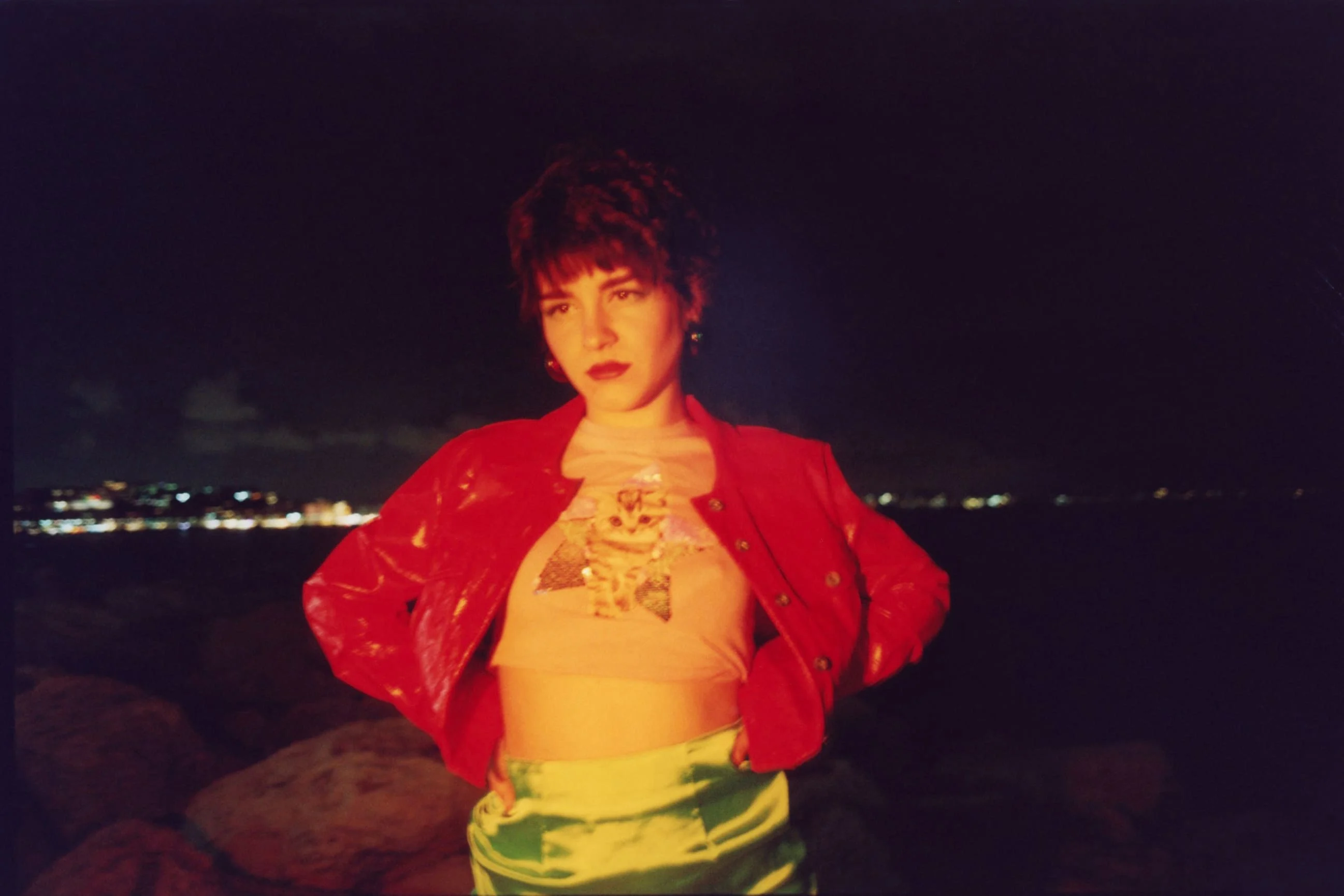

Here, love and hate, joy and pain, never separate, but always intertwine.
Despite the inclusion of a few monochromatic photographs, choosing color for this series was a no-brainer. “The bright, saturated tones felt inseparable from the dimension I was documenting,” Zagari says of the almost burned, distorted hues that, together with the movement that visibly shakes most outdoor shots, reveal—like a thermal camera—her muses’ energy and turmoil.
Inside the comfort of their rooms, or spending time at their trusted establishments left undisturbed by the male gaze, these women look fearless, almost intimidating, in their self-affirmation: they show skin, are in touch with their emotions and play with fashion—“short skirts, bold eyeliner, glitter on their cheeks”—to make a statement. Guiding us through the dimly lit bathrooms, empty streets, bars and bedrooms that witness these twenty-somethings’ coming of age, Zagari aims to demonstrate how, when they “are unaccompanied, they can move according to their own interests and desires rather than complying to the imposed modesty of religious tradition and men’s prevarications,” she says.
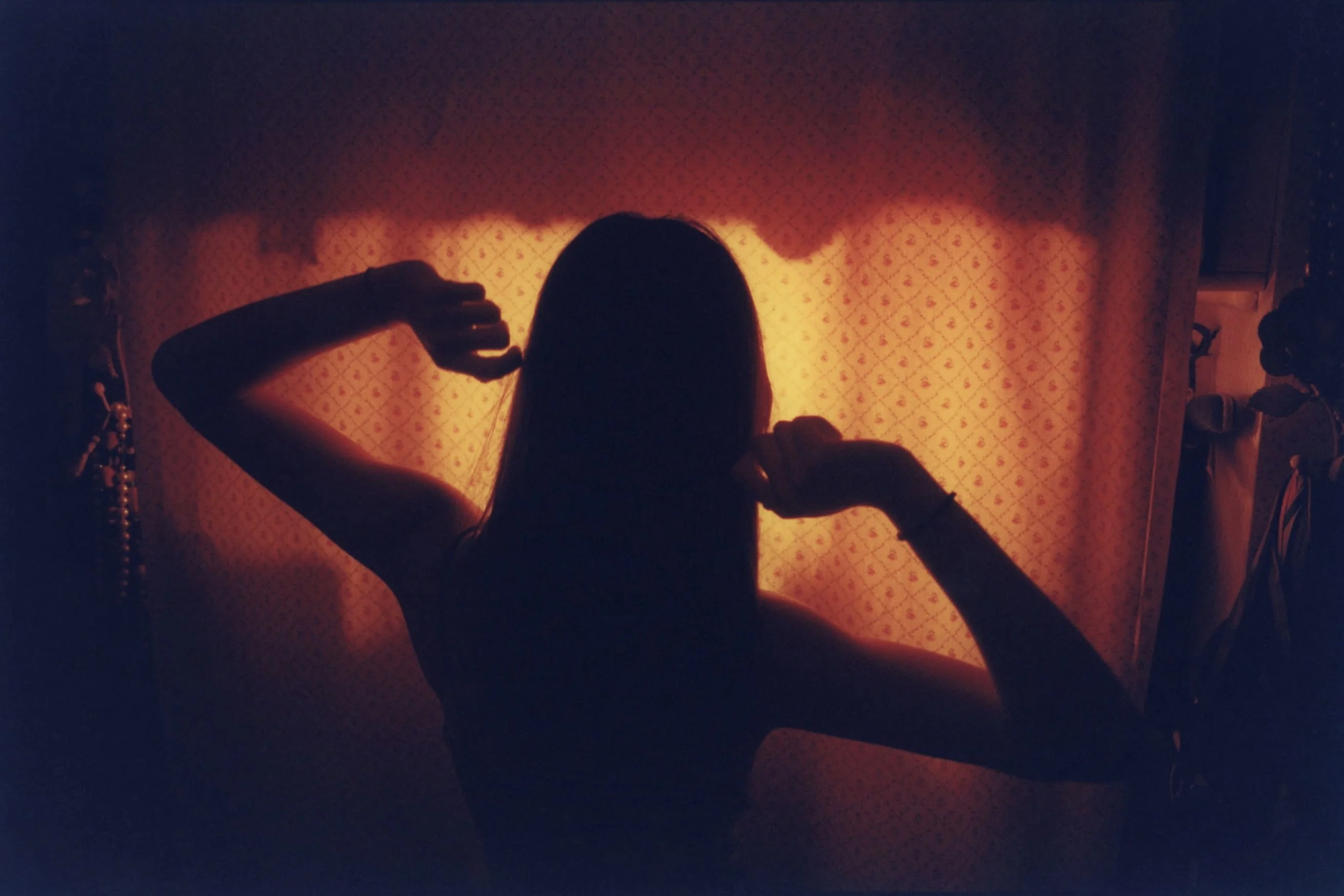
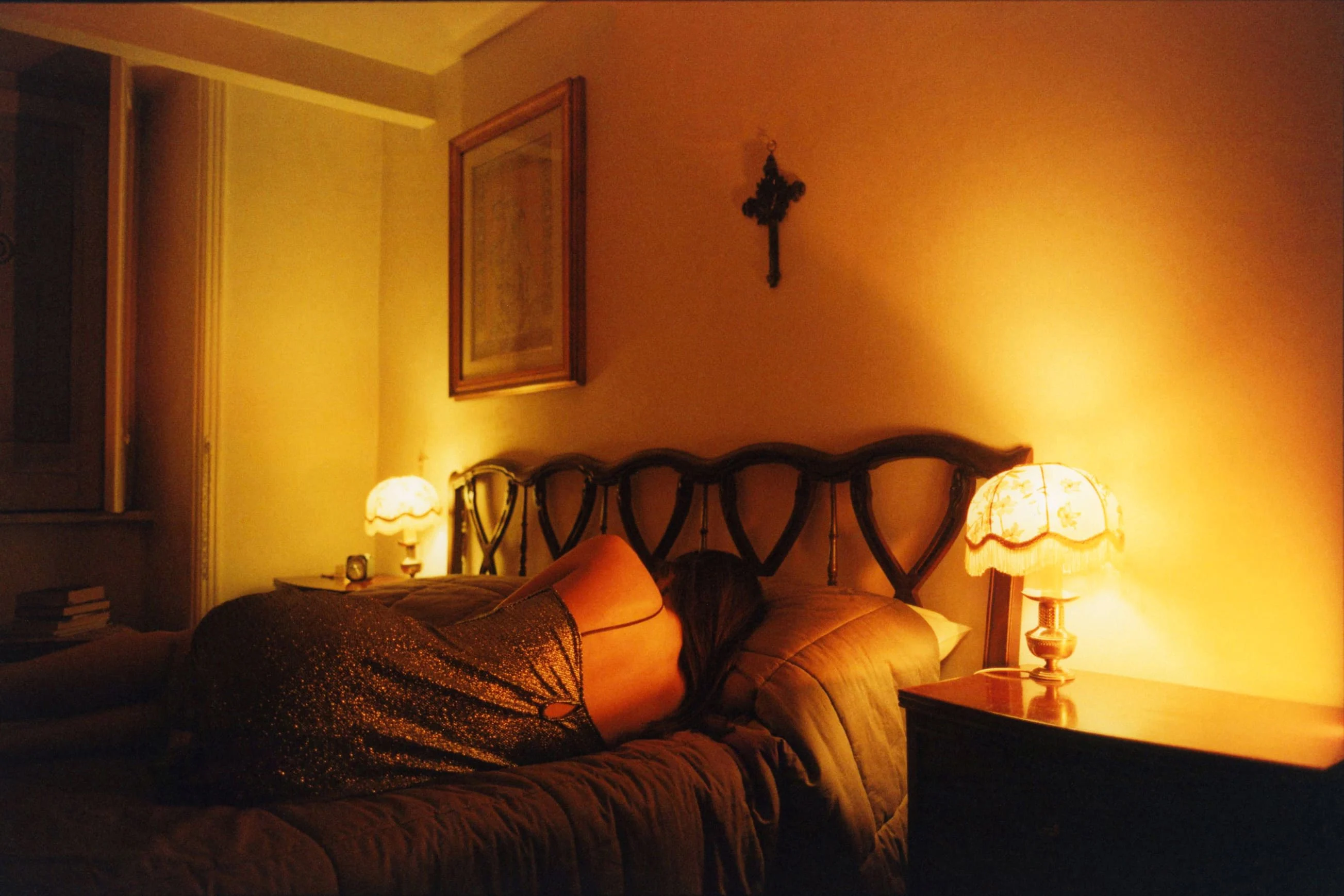
“In a city where women have historically been asked to make themselves small, these women claim space,” Zagari writes in the introduction to Un Mondo Proprio. “They are not waiting for permission. They are saying: ‘I am not here to make you comfortable. I am here to be acknowledged, as I am.’”

